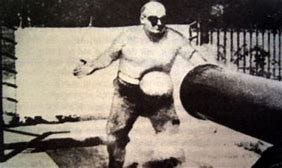The Internet of Attractions
Note: this is an old article from my email-exclusive newsletter Foisted. I am republishing it here to supplement an upcoming new post. This was originally posted on August 2, 2022.
We all know things will change in the future but we have a tendency to imagine inventions replacing inventions rather than the invention itself being fundamentally altered. Classic example: much vintage sci-fi imagined flying cars. Nowhere near as many imagined self-driving cars. Or millennials and zoomers preferring ride shares to buying cars.
Ask someone to imagine the Internet of the future and they will probably imagine VR with crypto. Why wouldn't they? There seems to be a bunch of money and investment pumped into it.
But what about Internet video? Surely viral videos have been the same for about 20 years now. More or less: funny, quick, to the point, directly addressing the audience.
Well, many people felt the same way about film in the 1910s. Films were one reelers with slapstick, cute/acrobatic animals, wondrous visuals of exotic locales. As we know, films primarily became vehicles for storytelling. So much so, that it affected how we saw the early years of cinema. George Meilies's "A Trip to the Moon" is appreciated for its contributions to special effects and science fiction.
In order to understand early film for its own intrinsic merits, the term Cinema of Attractions was invented. From 1895 to the 1910s, films were shown at carnivals, amusement parks and fairgrounds. Asking whether a movie was art was like asking whether a roller coaster was art.
Eventually film evolved into a storytelling medium influenced by theater and literature. Many adherents of the Cinema of Attraction like Tom Gunning and Sergei Eisenstein were frustrated at this shift. Audiences were becoming more passive as opposed to the boisterous fairground crowds. Early films addressed audiences without a fourth wall. Early film was more about confrontation than absorption.
Sound familiar? Many people who write about the Cinema of Attraction today believe that YouTube is a modern day Cinema of Attraction. Many people today assume a fourth wall in movies and a lack of one in online video.
Surely, we wouldn't expect the Internet to move away from this. I mean it hasn't happened yet. There may not be much of a future for a two hour video story on the web but this is primarily because attention spans are getting shorter and shorter. Even Netflix is losing to TikTok.
But from the beginning of time, people have loved stories. And the web is drawing people's attention away from everything. And, while we're at it, more and more films and shows seem woefully out of touch with the increasingly weird, unhinged, conspiratorial internet.
I'm not necessarily betting on the change. But it is easier to imagine it.



